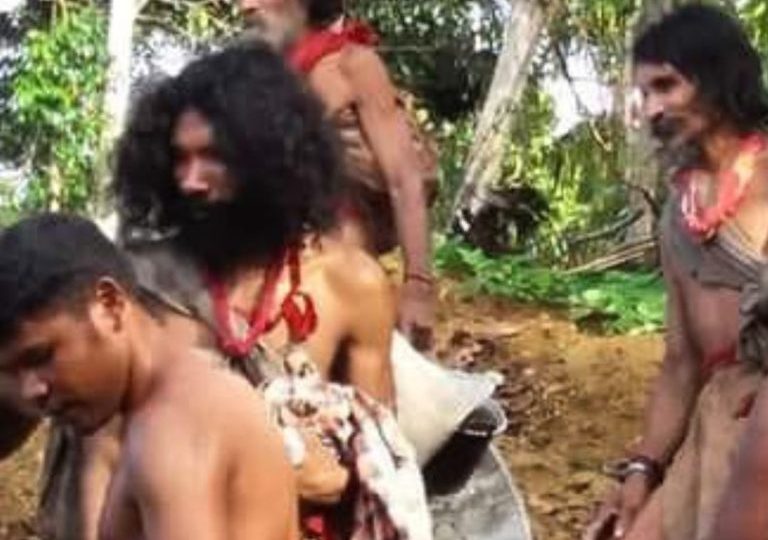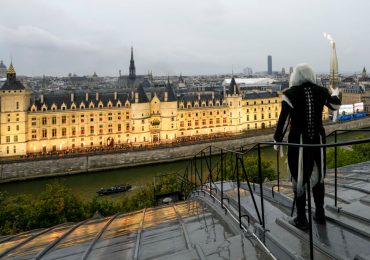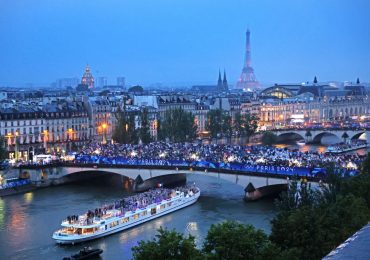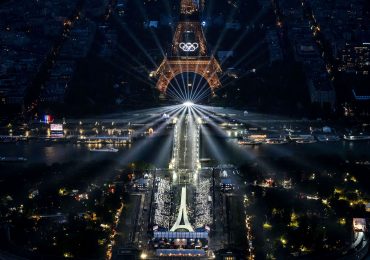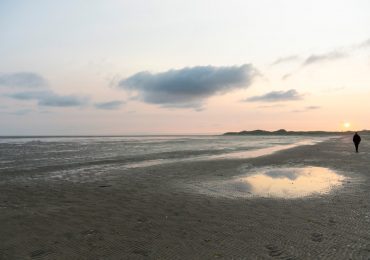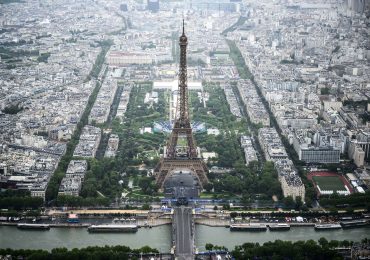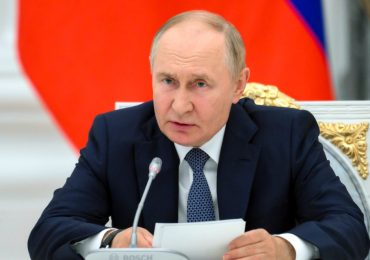INDIGENOUS tribes are fighting for survival as multi-billion projects for nickel mining destroy their homes.
Hongana Manyawa, an uncontacted tribe in Indonesia, choose to live in the rainforest, guarded from the outside world.
FacebookAn uncontacted tribe faces a possible extinction due to nickel mining[/caption]
Green hunger for EV destroyed 47,000 hectares of natural forest
The mining companies deprived tribes of drinkable water, clean air and food resources
FacebookTwo men from the tribe protect their river and land from the invaders[/caption]
FacebookThe bulldozer ignores them as it paves a path for mining[/caption]
But as Indonesia races to fulfill a growing global demand for batteries powering electric vehicles, the nomadic peoples lives are at stake.
Nickel is used as base material for lithium-ion batteries which are common energy source in electric cars.
Indonesia is the world’s leading nickel producer, and the Hongawa Manyawa’s forest sits on the rich land full of valuable mineral.
And this forest is shrinking by day, as the mining companies expand their nickel venture on the ancient land.
Just recently, two warrior tribe men were seen facing off a bulldozer in an attempt to stop demolition.
They raised their sticks to scare the excavator away to prevent nickel mining near their territories.
Hongawa Manyawa number around 3,000 people across Halmahera, the largest island in Maluku, Indonesia.
Between 300 and 500 tribe members voluntarily isolated themselves as they fear threats that the outside world poses.
The tribe members are forest guardians and have a vast knowledge of medicinal properties of local plants.
However, their knowledge proved useless when contacted with unknown, new diseases from the outside world.
From the late 70s to 90s, “the plague” tormented lives of Hongawa Manyawa, leading to widespread suffering and death.
But the greatest threat to their existence to this day comes from a so-called “green” industry that’s paraded as a panacea to the climate crisis.
In 2019, Weda Bay Nickel began mining the indigenous land and now controls the biggest nickel mine in the world with 45,000 hectares of land.
Weda Bay Nickel (WBN)- a company partly owned by French company Eramet – acquired a massive concession on indigenous land in 1998 by Indonesia’s then military dictator Suharto.
“When the government granted mining permit, they never consulted the local people as they don’t see them as the owners of the land,” Annas Rasyid, an activist with the Indonesian Indigenous People’s Alliance (AMAN), told VICE.
He added that Indonesian lawmakers, with financial links to mining companies, refuse to pass legislation to grant stronger legal rights to indigenous people.
According to Forest Watch Indonesia, the company is also responsible for 47,000 hectares of natural forest destruction in just four years.
To provide people across the globe with “sustainable” lifestyle, the Hongana Manyawa are forced to give up theirs.
They are known for being nomads, setting up home in one part of the forest before moving on and allowing it to regenerate.
But they’re facing brutal policies by the government which attempts to “civilize” them and forces the nomadic tribe to live in cramped tin roofed permanent homes.
The Hongawa people also often become scapegoats for police and have been imprisoned for crimes they didn’t commit, reports Survival International.
As a result of such targeted campaigns, the indigenous people have been “cleared off” their land, said Rasyid.
The warrior tribe is also known to be self-sustainable, foraging and hunting for themselves.
They rely heavily on the resources that the nature provides, but as forests are stripped naked, these resources become scarce.
One Hongana Manyawa woman said: “Trees are gone and replaced with the big road, where giant machines go in and out making noise and driving the animals away.”
Struggling to feed themselves, some nomadic people depend on the mining company handouts like instant noodles and rice to survive.
Major electric vehicle firm Tesla has reportedly invested over four billion pounds into the mining project while partnering with several companies linked to WBN.
Elon Musk vowed to sell 20 millions EVs in 2030 whilst his company promised to ethically source nickel.
But WBN, which plans to extract 40,000 tons of nickel each year for the next four decades, are found to be of violations of the UN requirements.
Survival International and other indigenous rights groups sound the alarm as they say WBN doesn’t conform to the UN and World bank requirements for Free, Prior and Informed Consent of Indigenous Peoples.
An unnamed tribe man said: ” We the Hongana Manyawa, do not want a mining company to come, because it will destroy our forest. We will protect this forest as much as we can. If the forest is destroyed, where will we live?”
In a company statement in 2019, the representative claimed that the company has “good relations” with Hongana Manyawa and identified 22 of the tribe’s cultural heritage sites inside its concession while implementing FPIC principles.
But Sophie Grig, senior researcher for the indigenous rights nonprofit Survival International, scoffed at the statement, saying: “How could you possibly get FPIC from an uncontacted tribe?”
Many of other local tribes surrounded their rights to the land for next to nothing prices.
But for Hongana Manyawa the forest isn’t just home and source of food, but also an ancestral shrine.
Hongana Manyawa means “people of the forest” in their own language.
They believe that trees have souls just like humans and they have a deep respect for plants and nature.
When a new member of the tribe is born, they plant a new tree and bury his umbilical cord underneath it.
At the end of their lives, their bodies are placed in the trees in a special area of the forest reserved for spirits.
One tribe member said: ” If there is no more forest, then there will be no more Hongana Manyawa”.
Weda Bay says they will respect indigenous ways of life, but their mines have already damaged rivers with toxic waste and polluted the air.
The warrior clan member said: “They are poisoning our water and making us feel like we are being slowly killed”.
FacebookThe clan members fight to protect ancestral land and sacred rituals[/caption]
Leave a comment
